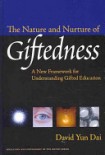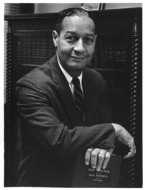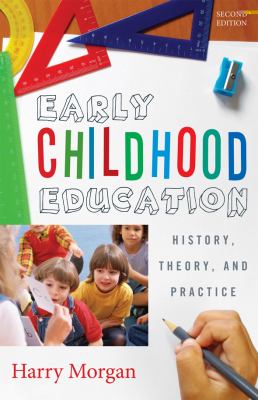 The Teaching Gifted, Talented and Creative Students e-guide has been revised and updated!
The Teaching Gifted, Talented and Creative Students e-guide has been revised and updated!

By Janice Schulz
In 1922, the College of Engineering and Commerce started a new degree program in Architecture that included a few classes in Landscape Design. The classes were well received, and when the Architecture Department moved to the newly created School of Applied Arts in 1925, a complete degree in Landscape Architecture was offered. With the growth of the Landscape program and the School of Applied Arts, a dedicated professor was needed to lead the Landscape Architecture program. Enter Professor Myrl Elijah Bottomley in 1926. A native of Michigan, Bottomley earned his Bachelor of Science degree from Michigan State College in 1916. He served in World War I as a lieutenant on the front lines in France, where, as a result of gas attacks, he developed health issues that would stay with him for the rest of his life. After returning from the war, he earned a Master of Landscape Design from Cornell University in 1922. Before coming to UC he served as Assistant Professor of Landscape Architecture at Iowa State College from 1922-1925. Continue reading
 By Kevin Grace, UC Archivist and Head of the Archives and Rare Books Library
By Kevin Grace, UC Archivist and Head of the Archives and Rare Books Library
Theodore M. Berry (1905-2000) was a key figure in American civil rights in the 20th century, a man who marked his life with a formidable sense of justice. From the 1930s, when he graduated from the University of Cincinnati with bachelor’s and law degrees, until his death just before a new century, Berry worked tirelessly to promote racial harmony and served with distinction in President Lyndon Johnson’s programs for civil rights during the 1960s.
Three decades ago, Berry donated his papers to the University of Cincinnati where they are housed in the Archives and Rare Books Library.
By Janice Schulz
Every city in every era seems to have its “Crime of the Century” and during the 1950s in Cincinnati, that was the 1958 murder of Louise Bergen, a Cincinnati housewife. The trial of her accused killer, Edythe Klumpp, was held during the summer of 1959. The case was sensational for many reasons – a “love triangle” between Edythe, Louise, and Louise’s husband, Bill Bergen; Edythe’s history of two divorces and other affairs; the participation of Foss Hopkins, Edythe’s defense attorney; the specter of the death penalty for a woman; and the controversial role of Ohio Governor Michael DiSalle in Edythe’s ultimate fate.
Louise Bergen’s body was found burned near the public beach at Cowen Lake on the evening of November 1, 1958. The subsequent investigation zeroed in on Bill Bergen’s live-in lover, Edythe Klumpp, who confessed after failing a lie detector test. Edythe claimed that the killing was accidental, that a gun went off during a struggle and hit Louise in the throat. But Hamilton County Prosecutor C. Watson Hover disagreed, charging her with first degree murder and seeking the death penalty.
 The Early Childhood Education e-guide to library resources has been redesigned. Continue reading
The Early Childhood Education e-guide to library resources has been redesigned. Continue reading
By Janice Schulz
 You would probably not be surprised to learn that UC Libraries hold copies of Malcolm X’s biography, Fahrenheit 451, Shakespeare’s Macbeth, and Treasure Island. What might surprise you, however, is that these are all titles of graphic novels. A new exhibit currently on display on the fourth floor of Langsam Library features these and many of the other graphic novels available in UC Libraries’ collections. The exhibit was curated by Janice Schulz, University Records Manager and Archives Specialist, and designed by Cole Osborn, former design student.
You would probably not be surprised to learn that UC Libraries hold copies of Malcolm X’s biography, Fahrenheit 451, Shakespeare’s Macbeth, and Treasure Island. What might surprise you, however, is that these are all titles of graphic novels. A new exhibit currently on display on the fourth floor of Langsam Library features these and many of the other graphic novels available in UC Libraries’ collections. The exhibit was curated by Janice Schulz, University Records Manager and Archives Specialist, and designed by Cole Osborn, former design student.
By Suzanne Maggard
Did you know that the Archives and Rare Books Library holds thousands of linear feet of archival material? ARB has material relating to Urban Studies, German-Americana, University Archives and local government records including things like UC Board of Trustees minutes, wills for Hamilton County, Ohio, photographs of Cincinnati’s never completed subway, theater programs, labor newspapers, sheet music and much, much more. We are constantly in the process of organizing these materials and creating finding aids to help you locate them. We’ve recently updated the finding aids lists on our website to show you even more of what we have. We’ve also added links to our finding aids available through the OhioLINK Finding Aid Repository. Take a look and see if there is anything that interests you. For more information, call the Archives and Rare Books Library at 513-556-1959 or send an email to archives@ucmail.uc.edu.
 Have you wondered what new books and teaching resources CECH Library has acquired? Continue reading
Have you wondered what new books and teaching resources CECH Library has acquired? Continue reading